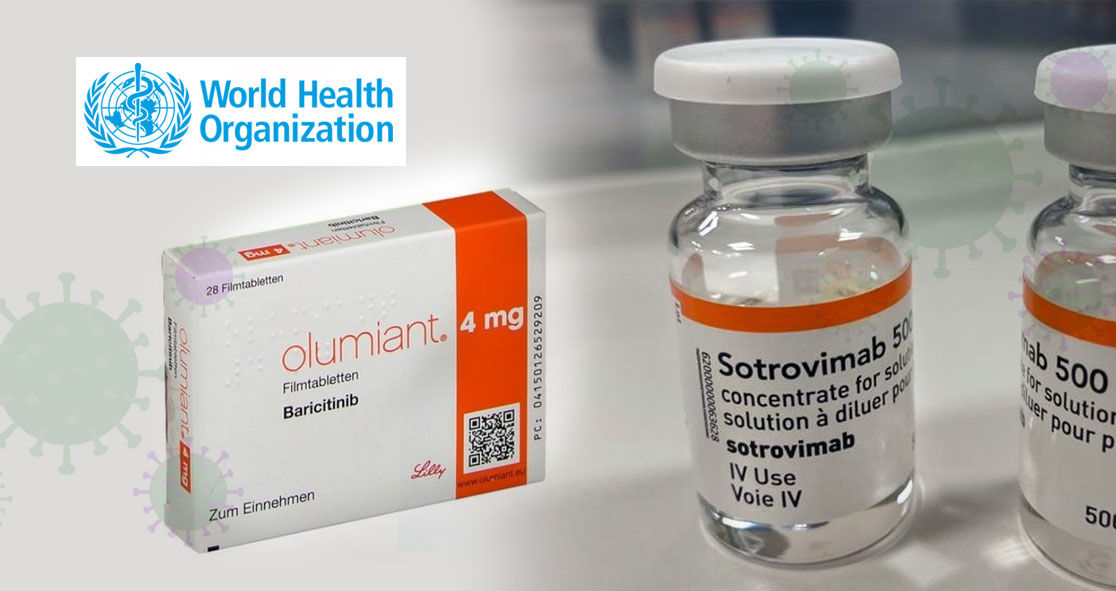Last week, the World Health Organization (WHO) recommended two new drugs for the treatment of COVID-19, offering more options to manage the disease.
On January 14, the global health agency mentioned that it recommends baricitinib and sotrovimab to treat patients with COVID-19, adding that the extent to which these drugs will save lives depends on how widely they will be available and affordable.
Sold under the brand name Olumiant, baricitinib is an oral drug used to treat rheumatoid arthritis. It is a Janus Kinase (JAK) inhibitor. The European Medicines Agency (EMA) and U.S. Food and Drug Administration (FDA) have approved baricitinib for rheumatoid arthritis in patients who fail to respond to tumor necrosis factor (TNF) inhibitors.
The WHO has recommended baricitinib for patients with severe or critical COVID-19. It said the drug is given with corticosteroids.
Sotrovimab, sold under the brand name Xevudy, is one of the human neutralizing monoclonal antibodies, which has activity against severe COVID-19 infection. The WHO has also conditionally recommended the use of sotrovimab for treating mild to moderate COVID-19 in patients who are at high risk of hospitalization.
The drug can also be given to patients who are older and immunocompromised, and those who have comorbidities such as diabetes, hypertension, and obesity. Furthermore, the WHO said sotrovimab can be given to unvaccinated people who are infected by the coronavirus.
The WHO wrote, “Sotrovimab is an alternative to casirivimab-imdevimab, a monoclonal antibody cocktail recommended by WHO in September 2021. Studies are ongoing on the effectiveness of monoclonal antibodies against Omicron but early laboratory studies show that sotrovimab retains its activity.”
The agency continued, “WHO is in discussions with manufacturers to secure global supply capacity and equitable and sustainable access to the newly recommended therapeutics.”
“The Access to COVID-19 Tools Accelerator (ACT-A) Therapeutics pillar has been engaging with pharmaceutical companies to seek comprehensive access plans for low- and middle-income countries, so that these treatments can be rapidly deployed everywhere, not just in rich countries,” it added. “The ACT-A is also looking to expand licensing scope to make the products more affordable.” Baricitinib and sotrovimab have been invited for WHO Prequalification – a process that assesses the safety, quality, and efficacy of priority health products to increase access in lower-income countries.























